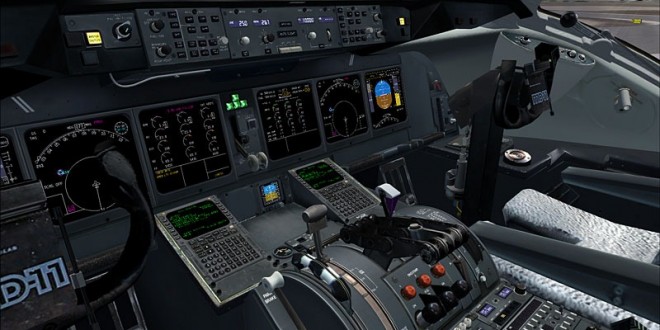Dovetail Games has announced that they have acquired the rights to develop and publish further games in the Microsoft Flight Simulator series. The news is unexpected, considering the last entry in the series was the unpopular Microsoft Flight in 2012. As part of the deal made with Microsoft, Dovetail Games will also be releasing Flight Simulator X: Gold Edition on Steam later this year. The developer has also revealed that they are currently looking at a number of options with plans to bring a new release sometime in 2015.
Speaking in the announcement, Paul Jackson, CEO of Dovetail Games said: “We are thrilled to be exploring new flight simulation opportunities using Microsoft’s technology, and look forward to using our extensive expertise of Steam publishing to successfully bring Microsoft Flight Simulator X: Steam Edition to a broad new audience on the Steam platform. This partnership is perfectly timed to support our expansion into new areas of simulation.”
The Microsoft Flight Simulator series began as a series of programs created by Bruce Artwick to run on a variety of platforms. In 1982 Artwick licensed a version of the game to Microsoft for release on the IBM PC. Although early versions of the game were not commercially successful, the release of Microsoft Flight Simulator 3.0 marked the rise in popularity of the series. Since then Microsoft has gone on to release over ten different entries in the franchise. However, in 2009 they closed the development studio behind the titles leading to speculation the series could end, although the unsuccessful Microsoft Flight released in 2012.
Microsoft Flight Simulator X is the most popular version of the simulator series. Releasing in 2006, it was well-received and went on to be a commercial success. A number of patches and expansions have been made available for Flight Simulator X, introducing new areas and aircraft to the game. The biggest was Acceleration, which brought with it scenery enhancements and special aircraft unavailable elsewhere. It also gave the game support for future operating systems, allowing better performance and graphics to be used.
 Load the Game Video Games, Reviews, Game News, Game Reviews & Game Video Trailers
Load the Game Video Games, Reviews, Game News, Game Reviews & Game Video Trailers

